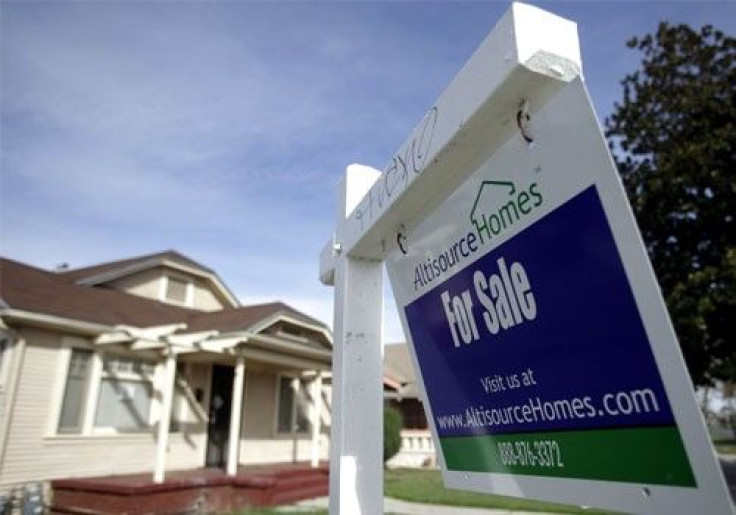'Robo-signers' effect: U.S. foreclosures dip in Oct

Home foreclosures in the U.S. in October fell by 9 percent primarily because some major banks temporarily froze foreclosure proceedings and delayed sales of foreclosed properties nationwide after being criticized for shoddy paperwork, according to real estate data company RealtyTrac.
According to RealtyTrac, banks repossessed 93,236 homes in October, sharply lower than September's record high above 100,000 homes.
Foreclosure filings in October also dipped 4 percent sequentially to 332,172 or about the same level in the year ago period.
According to RealtyTrac CEO James J. Saccacio, this is a result of the fallout from the recent 'robo-signing' controversy.
In October, the attorney generals of all 50 U.S. states and the District of Columbia initiated a joint investigation to find whether mortgage companies have violated state laws after receiving complaints that some of them did not properly review files or submitted false statements to evict delinquent borrowers from their homes during the foreclosure crisis that has become one of the most visible wounds of the 2007-2009 recession.
The allegation is that some banks have used mid-level bank executives or walk-in hires, dubbed 'robo-signers,' because of the speed with which they signed thousands of foreclosure affidavits a month without reviewing them carefully.
The attorney generals said the corner-cutting and slipshod paperwork (by lenders) are troubling and may impose financial penalties where appropriate. They also said they might require lenders to change the way they process mortgages and foreclosures.
The courts in some U.S. states, including New York, also said they'll become strict in foreclosure proceedings and censure lawyers who do not verify the paperwork.
The banks accused of hiring robo-signers include JPMorgan Chase & Co, Wells Fargo & Co., Ally Financial Inc. (formerly GMAC) and Bank of America. These banks froze all foreclosures nationwide while they reviewed their filings for errors. However, subsequently Bank of America and Ally Financial Inc. resumed foreclosure proceedings.
Our guess at this point is that we'll probably see another month of some delays, RealtyTrac Vice President Rick Sharga told Reuters in an interview.
According to the real estate firm, Nevada posted the highest foreclosure rate in the country, with one in every 79 housing units in Nevada receiving a foreclosure filing in October or five times more than the national average, while five states - California, Florida, Michigan, Illinois and Arizona - accounted for more than half of all foreclosure activity.
© Copyright IBTimes 2024. All rights reserved.











